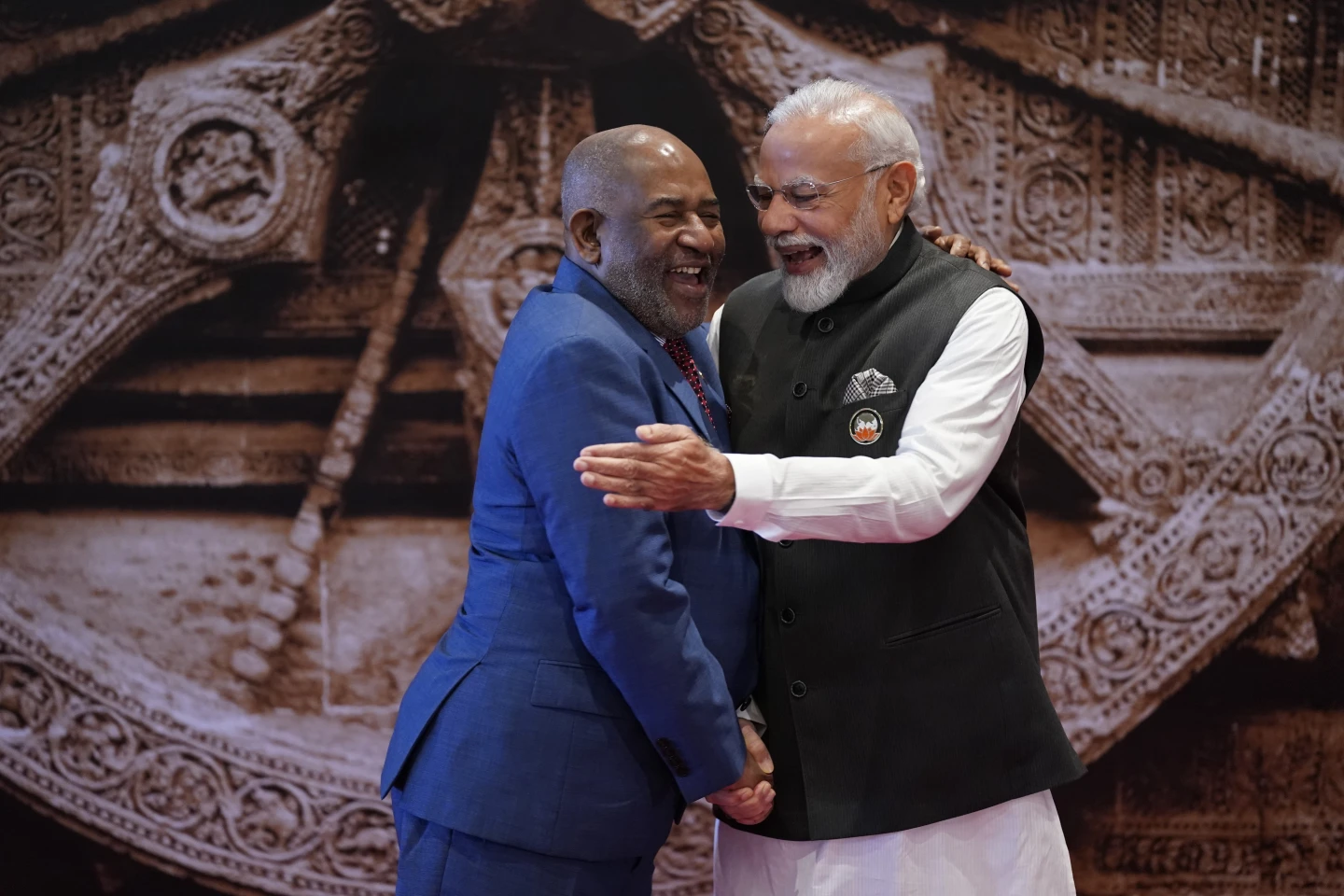The recent G20 conference, held in India in early September, took an unexpected turn when the African Union (AU), consisting of 55 nations, received an invitation to join the ranks of the world’s most influential economies. As a result, the G20 transformed into the G21, with 19 member nations alongside two political and economic entities – the EU and the AU. This unprecedented invitation not only highlights Africa’s growing influence on the global stage but also presents a unique opportunity for African nations to have a say in international institutions historically dominated by post-World War II powers. However, Africa also faces a myriad of challenges, from climate change to political instability and economic inequalities, with many nations burdened by debt. The extent of the impact of this AU membership on the global stage remains a topic of debate among experts.
Pressure for the AU’s G20 membership has been steadily building up throughout this year. Senegalese President Macky Sall has vociferously argued that such a move would rectify a longstanding “injustice,” while European Central Bank’s Director, Christine Lagarde, emphasized the need for Africa to have more influence in global financial institutions. Zambian President Hakainde Hichilema stated, “Africa’s permanent membership in the G20 signifies recognition as a key player in the global economic landscape.” He also urged African countries to leverage this position to accelerate economic development and empower their young populations.
While the inclusion of the African Union at the G20 may appear commendable as steps towards inclusivity, it raises critical questions about the effectiveness of such partnerships in addressing the pressing climate issues. Drawing on French President Emmanuel Macron‘s latest speech on climate change, we can reflect on how these developments fit into the broader narrative of international climate politics. Macron’s call for immediate climate action and the imperative for global unity offers a contrasting perspective to India’s invitation to the African Union and the G20’s expansion.
The motives behind these invitations can be crucial to understanding the potential impact on climate cooperation. Are they genuine efforts to foster climate collaboration, or do they serve as strategic political maneuvers? What effects might they have on the established dynamics within the G20? Can these new members exert a positive influence on the G20’s climate agenda?
India’s invitation to the AU could be interpreted as a strategic move to gain support for its own climate initiatives and strengthen its leadership position to be the voice of the Global South in all negotiations. This is particularly relevant as India grapples with balancing its economic growth with climate commitments. Conversely, the AU’s inclusion can be seen as an opportunity to elevate climate concerns on the global stage, given Africa’s vulnerability to climate change.
Pledges to accelerate the efforts towards achieving Sustainable Development Goals (SDGs), encompassing global food security, a unified strategy for health concerns, high-quality education, and leveraging AI for these objectives by 2030, have already been made. A new proposal has also been put forth, focusing on climate action, aiming to triple global renewable energy capacity, alongside a commitment to achieve net zero GHG emissions by 2050.
Back in 2010, developed countries members of the G20 had committed to mobilizing $100 billion to assist developing nations in their fights against climate change. However, these developing countries are still eagerly awaiting this long-promised financial compensation. The newly set goals raise questions about the African Union’s role in climate negotiations and its ability to effectively advocate the interests of nations affected by climate disasters within the G20 framework. Does this mark a turning point for Africa in the realm of climate politics, or will it be a symbolic inclusion without substantive influence?
Africa is disproportionately affected by climate change, with droughts, floods, and extreme weather events becoming increasingly frequent. Historically, the continent’s voice in international climate negotiations has often been drowned out, but its inclusion in the G20 presents a fresh avenue for articulating its climate concerns. If the AU can effectively advocate for African interests within the G20, it could bring much-needed attention and resources urgently needed to combat climate change on the continent.
Regardless of the underlying motives, the world finds itself at a juncture where bold climate action is an absolute imperative. The diplomatic move to include the African Union invites us to reflect on the potential impact on the global climate agenda and the implications for the future of climate politics. While the motivations behind these invitations may be multifaceted, the overarching goal should be a collective endeavor to address the pressing climate crisis effectively.
In the forthcoming years, the world will witness whether this unexpected inclusion of the African Union in the G20 will indeed catalyze meaningful climate action or remain symbolic. It is a pivotal moment for the global community to reassess its commitment to tackling climate change and to ensure that all nations, particularly the most vulnerable, have an unequivocal seat at the table in shaping the future of our planet.
Featured Image Source: Associated Press News






Comments are closed.